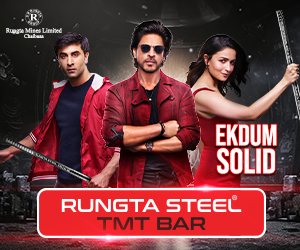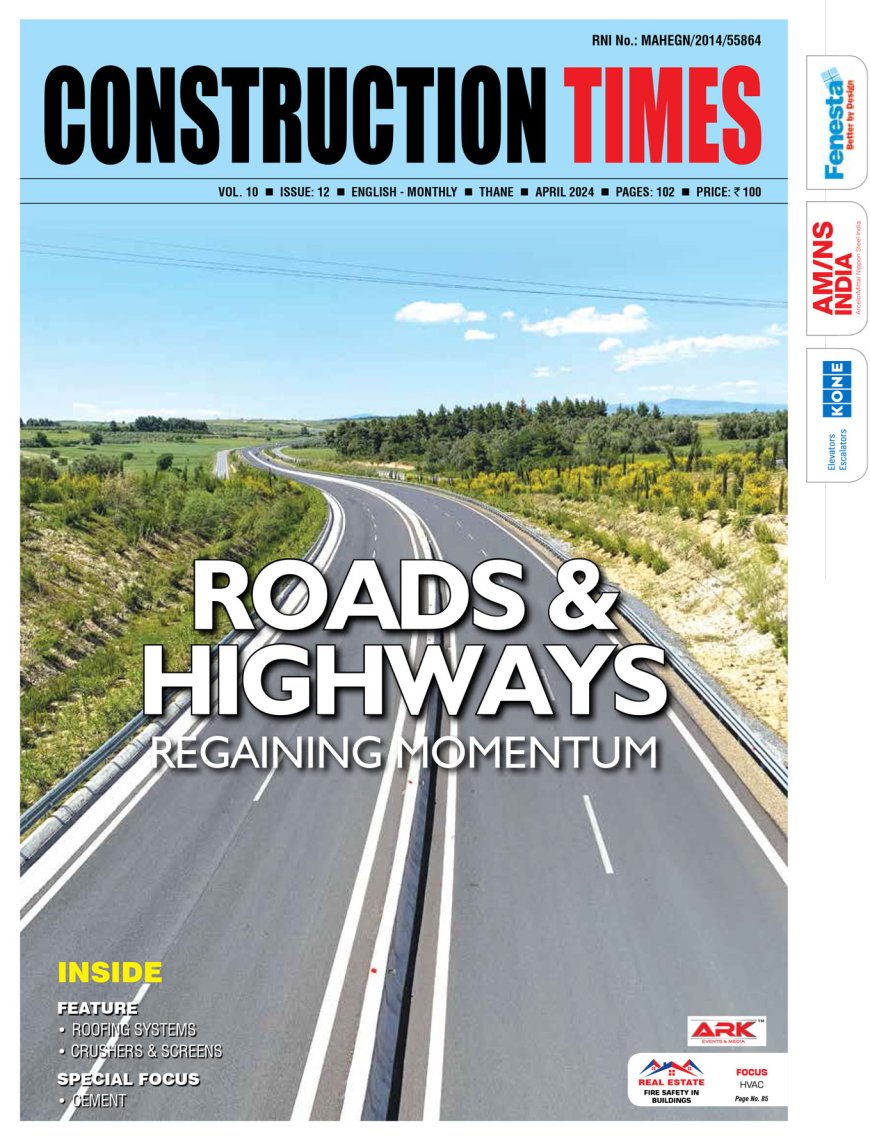Afcons is redefining metro infrastructure by constructing some of the most iconic and complex projects in the country.
Mass transit systems have been functional across Europe and America since the first half of the 20th century. Today there are approximately 3,500km and 1,332km of operational networks in both continents respectively. India, a relatively late entrant in modern Metro system, has seen exponential growth over the past two decades. Since 1990s, metro projects have

 Mass transit systems have been functional across Europe and America since the first half of the 20th century. Today there are approximately 3,500km and 1,332km of operational networks in both continents respectively. India, a relatively late entrant in modern Metro system, has seen exponential growth over the past two decades. Since 1990s, metro projects have grown to 678km operational, 462km under construction, and 457km of approved networks in more than 25 cities.
Mass transit systems have been functional across Europe and America since the first half of the 20th century. Today there are approximately 3,500km and 1,332km of operational networks in both continents respectively. India, a relatively late entrant in modern Metro system, has seen exponential growth over the past two decades. Since 1990s, metro projects have grown to 678km operational, 462km under construction, and 457km of approved networks in more than 25 cities.
The Indian metro construction ecosystem has matured from a handful of construction companies to a cluster of experienced contractors across civil, electrical, rolling stock and allied functions. During early days, Indian companies would form joint ventures with international players. Today, the industry has more than 15 capable contractors delivering complex projects independently.
Afcons has established itself as a leader in metro rail with projects across eight Indian cities. The Shapoorji Pallonji Group company, which began its metro journey with India's first metro project in 1980s, is involved in construction of over 160km of mass transit (completed and ongoing metro works and rapid rail). So far, the company has completed over 35km of underground metro tunnelling and over 25 elevated and underground stations.
A Challenging Start
Although Afcons had made its ambitions clear by using a special blade shield technique for tunnelling at Kolkata Metro in the 1980s, its real claim to fame came during the execution of Delhi Metro through the past two decades. Afcons completed 35.2km of elevated and underground network, including 17 elevated and underground stations, so far, and became the first Indian company to construct an underground metro station using top-down methodology without any foreign joint venture. As we look back, Afcons has created several benchmarks and milestones in the metro segment and, today, it is reckoned among the country's best.
Multiple Milestones
After its maiden metro stint in Kolkata, Afcons returned to the city once again in 2010 with the East-West Metro project. Afcons created history by completing India's first underwater metro tunnels. The twin tunnels of 3.8km each under river Hooghly is set to revolutionise underground mass rapid transit in the country. The tunnelling for the underwater stretch was completed in a record time of 67 days. Afcons is also finishing India's deepest metro station (30m below ground level) for the same project, and has completed India's deepest ventilation shaft that goes 43.5m below ground level.
In Chennai, Afcons has constructed one of the country's largest multi-level interchange metro stations. The company has worked in the most complex underground stretches and has excelled in TBM tunnelling with multiple feats. It is also the only company in India to qualify for metro tunnel construction using TBMs on its own in this project.
In Nagpur, Afcons has constructed one of India's tallest multi-level metro stations, and holds the distinction of constructing the country's longest double-decker metro flyover. It has also constructed an 11km viaduct in 28 months. A critical stretch of the project was completed five months ahead of schedule enabling early commencement of commercial operations.
Innovation Culture
Metro construction involves large capital expenditure and specialised execution skill, something that India has developed over the years. Afcons has adopted the latest technologies to build state-of-the-art viaducts, tunnels and stations.
For the historic stretch below river Hooghly in Kolkata, Afcons deployed a team of highly-experienced tunnel crew on board, should an entry into the cutting chamber be required under high hyperbaric pressures during river driver. In the remote possibility of river water ingress, the TBMs could shut down like a submarine for safe evacuation. Owing to site constraints, the TBMs had to be driven through Howrah metro station in advance. This was a delicate operation where they could encounter difficulty in crossing the diaphragm walls. Afcons designed a 'soft eye' of styrofoam replacing M-40 concrete, which worked extremely well for this project. This is a first design of its kind attempted in India by in-house design engineers.
The 245m-long station and 385m-long tunnel at Barakhamba Road, in New Delhi, was built using highly technical top-down methodology, drastically reducing time cycle for major activities. Pedestrian and vehicular traffic largely remained undisturbed during construction due to the revolutionary innovation.
In a methodology adopted for the first time in India, Afcons bucked the trend to build diaphragm wall after completing underground tunnelling for Kankaria Station at Ahmedabad. Non-availability of land during the critical stage of construction necessitated this innovation, wherein two EPB TBMs were set in motion from Apparel Park, 575m away from the station itself. This unique innovation saved time and allowed optimum use of equipment, which would have otherwise idled away, if the standard procedure was followed.
Machine Magic
In Chennai Metro, diaphragm wall construction was done by overcut method using a hydromill for the first time in India. At the same location, engineers attempted Reverse Circulation Drilling (RCD) on land with efficient management of fluid circulation, also for the first time in the country.
At Ahmedabad Metro, a high-pressure centre flushing system was introduced through the rotary coupling of the TBM to keep the centre of the mixed face cutter head clean. This reduced up to 12 hyperbaric cutter head interventions, easing the process and saving cost. Also, an automatic fire detection and suppression system was introduced to avoid fires in the TBM cutter head drive motor. Afcons' teams were able to create diaphragm walls for all stations of Chennai and Ahmedabad metro without any breakage by using TBMs with mixed face cutter heads.
In Nagpur, Afcons is constructing a metro-cum-flyover stretch over single piers. The design team conceptualised a double decker launching girder that can negotiate a radius up to 200m. The fabrication of two such equipment was done in just three months. They ensured better productivity compared to conventional launching girders as spans between two piers can be erected one after the other after the completion of one auto-launching cycle.
Managing Crisis
Even though Covid-19 pandemic and the ensuing lockdowns impeded progress, Afcons bounced back to make significant progress and make up for the lost time at all its projects. The company made noteworthy progress along the 9-km priority corridor from IIT-Kanpur to Motijheel for Kanpur Metro project. Since August, Afcons has erected over 100 U-girders and has completed 90% of the total piling activity.
The base slab for the deepest metro ventilation shaft, in Kolkata, was also cast during the pandemic.
Looking Ahead
With projects planned in more Indian cities, metro rail will soon be the most preferred mode of transport for urban residents. Afcons is humbled to be a part of India's Metro growth story.

Hits: 1034







